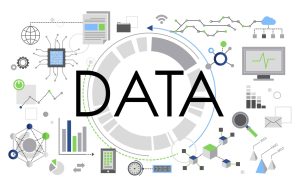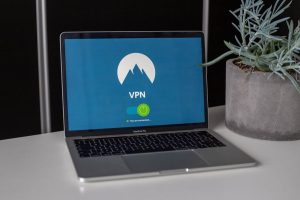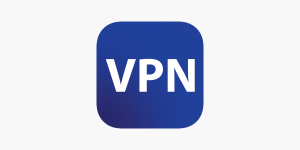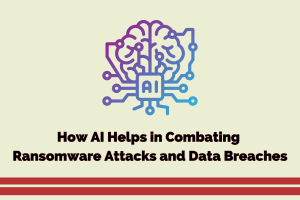Learn How Free VPNs Manage to Steal Your Data and Make Profit Out Of It

The world in which we live is in dire need of security. Banks often tighten up their protection against robberies, while professional sports leagues usually come up with a set of rules to safeguard the wellbeing of the show, the players, and the fans.
The reason behind that is because every day, we see new types of criminal activity. Thieves evolve to invent innovative ways to bypass authorities and ruin everything; all because they only care about their wellbeing.
A similar thing occurs in the digital platform. The rates at which hackers are growing in skill and talent often surpass that of which online security agencies and companies can come up with services to protect the well-being of people’s assets.
Don’t underestimate hackers!
Hackers are talented, ruthless professionals that can wreak havoc in people’s digital lives: they can steal passwords and credit card numbers, they can enter and alter people’s social media accounts, and they can take someone’s identity in seconds. They often find out new vulnerabilities in commonly used systems, such as the KRACK, the POODLE, the Main in the Middle, the Ransomware, spyware, and many more.
That is why it is crucial to do anything you can to protect your data privacy and that of your loved ones. You don’t want one of these individuals sniffing around your traffic and your credit card information, not to mention your Twitter, Facebook, or Instagram accounts.
VPN: the best tool for online privacy
The human being has come up with ways to protect data privacy. Smart DNS services and proxies are some examples, but the latter only reroute your traffic without encrypting it, making you vulnerable to data loss.
The best methods for data and digital assets protection are Virtual Private Networks. They are online resources with encryption power. That means that they will manage your traffic and generated content, replacing your Internet Service Provider in that task.
VPNs are security and privacy-oriented companies, and you would be better off with them managing your data instead of your ISP. Internet companies not only log your activity, but also share it with governmental agencies upon request, online advertisers, and other unwanted third parties.
VPNs create a virtual, computer-generated tunnel in which your IP address and generated online content will travel to remote servers, away from your ISP, government censorship, and more. They won’t be able to decipher the message because it will be encrypted.
To protect the users’ data and privacy, VPN companies implement technologies known as protocols. The best standard in the industry is OpenVPN, but options such as IKEv2 are also healthy alternatives.
Which VPN can you trust?
Paid VPNs may not be perfect (in life, nothing is,) but they can be your best bet if you want privacy and security in your online ventures. Since they charge users for their service, they are better prepared to deal with the ups and downs of the online safety industry.
They can invest more money in providing robust encryption, they have excellent infrastructure and bigger server networks, and they have more transparent, more transparent privacy policies. In general, they treat users’ data the way it should be addressed: not logging it and, if there are minimal bits kept, not sharing them.
One of the most suitable paid VPN clients in the market is Surfshark. It has Chrome and Firefox extensions, an Android app, unlimited devices (the only one that can offer that!) and excellent speeds.
It keeps no logs, and it uses advanced protocols, such as OpenVPN and IKEv2. They implement the military grade AES 256-bit encryption, and they have a month-long money-back guarantee.
Related : Free vs Paid VPN
Free VPN: is it as good as it sounds?
There are two types of VPN companies: those that don’t charge users anything and those that do. You might think that the former is better and more convenient since there are no payments involved. But that would be a mistake.
Nothing, or at least very few things, in life come for free. These apps claim to protect your privacy and anonymity, but they have to make money somehow. How do they profit, then? By selling your data around to online shops and web advertisers that create personalized potential buyers’ profiles.
How are these profiles personalized? They contain relevant information about the user’s most visited websites, and salespeople take advantage of that data to try to entice them into buying their products.
Generally speaking (of course, not all VPN brands act the same,) free VPNs are not to be trusted, because there are countless documented cases in which it has been demonstrated that they steal users’ data.
So how do free VPNs steal your data?
Imagine you are serving the food in your house, or at your school, at lunchtime. You control the portions and who gets to eat, right? Because you are the one distributing the goods, in this case, the meals.
Free VPNs act similarly. They are the ones serving or distributing the food, which in this case would be the data shared and generated by its customers. They can control what to do with that information, because they are providing the service, just like you are with the lunch.
That is basically how free VPNs steal your data, or at least the short explanation. For a longer one, keep reading this article. One important thing to remember is that you are trusting your generated online content to a “free” company, and that may not be a good idea.
Free VPNs steal your data by tricking you. They often have ambiguous or misleading privacy policies which lead you to believe that they not only keep your data secure but also that they won’t keep logs of it.
The reality is very different. While not all free VPN providers keep activity logs or share them online to the highest bidder behind your back, many of them do, and that is dangerous for two things. One, critical information about yourself, your device, your location, and your connection (sometimes even financial data bits) will be public, and you don’t know if it will arrive at the wrong hands. And two, since you are using an encryption tool to trust your privacy, a shady activity can be performed with your data without you even finding out: you may not b able to gather the tools to defend yourself since it will catch you by surprise.
Widely known free VPN provider Hola has sold users’ spare bandwidth in the past. This caused their connection to be used for shady Denial-of-Service (DoS) attacks and other illegal means, such as copyrighted content to images of child abuse. Do you want your name associated with those activities?
Many other free VPNs have been accused of spying on their customers’ traffic for various purposes. They track and intercept user data to use it at their convenience, and that is why it is so easy for these services to gain access to what you share online while you are “protected” with them.
Why do free VPNs steal your data?
In short, for financial reasons. Since they don’t collect money from their subscribers and customers, they somehow have to find resources for server maintenance and to keep providing their service.
Before subscribing to a free VPN provider, make sure to read their privacy policy carefully and to ask as many questions as you can. Look for direct, concise answers, and stay away if don’t find them.
If a VPN brand is not transparent enough, it most likely will log connections, monitor users’ browsing habits, sell their data to advertisers and redirect online traffic.
Other risks attached to free VPN
Hidden malware: some free VPN providers have hidden malware that is prepared to steal their data by sending spam emails or tricking you into providing your credit card details.
Hidden tracking: A VPN should be a security-driven company, so it is not supposed to log data. However, most free VPN does.
Third-party access: Having third parties accessing your data can be dangerous, especially if you don’t know exactly who is going to see or use it.
Traffic leaks: Free VPNs don’t have potent enough encryption to prevent IP, DNS or WebRTC leaks. That means your online identity may be public at some point if you trust your privacy to a free VPN.
Bandwidth theft: Numerous free VPNs are known for stealing their own users’ bandwidth and guess what? They sell it to third parties.
Browser hijacking: free VPNs use unsafe pages that redirect you to partner sites that can be detrimental to your online security or privacy.






